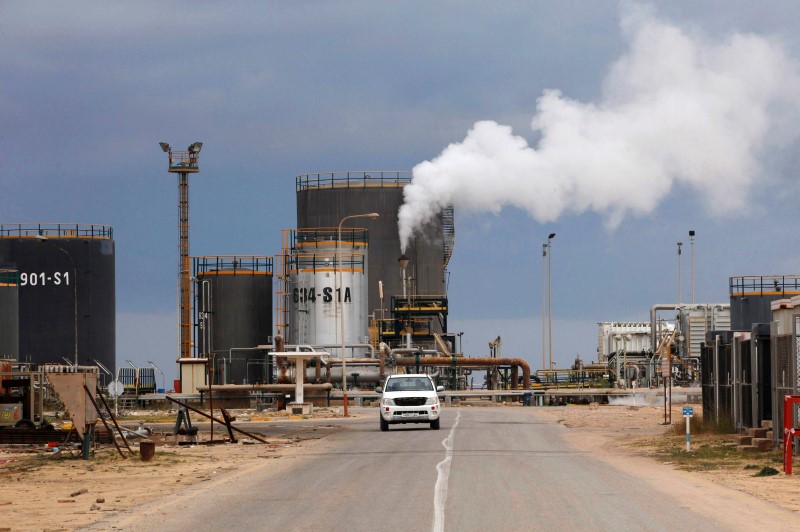By Katya Golubkova and Gleb Gorodyankin
MOSCOW (Reuters) - Russian oil companies will quickly find ways to work around tighter restrictions imposed this month by the United States on the foreign finance they can use, multiple Russian oil industry sources told Reuters.
The new restrictions cut the period that U.S.-based entities can provide finance to Russian energy firms from 90 to 60 days and are part of a fresh package of U.S. sanctions that U.S. President Donald Trump approved on Aug. 2.
Initiated by Congress, the sanctions were in part designed to punish Moscow further for its 2014 annexation of Ukraine's Crimea peninsula and to sanction it for what U.S. intelligence agencies say was its meddling in the U.S. presidential election, something Russia denies.
In particular, the measures were designed to hurt Russia's energy sector, its biggest source of revenue.
But though the new steps are an inconvenience that could cause Russian oil companies to incur extra costs, the sources, who work for Russian oil firms and Russian and foreign oil trading houses, said that they were only incrementally worse than sanctions that have been in place since 2014.
Oil companies had learned to adapt then and would do so again now, they said.
None of the oil trade sources said they knew of any transactions having been disrupted as a result of the new measures.
"Business as usual," said one Russian oil trader, who spoke on condition of anonymity, when asked to describe how the industry was coping with the new curbs.
Still, of all the various measures targeting the energy sector, the restriction cutting the financing duration would have the biggest direct impact even if there were ways to mitigate it, the industry sources said.
POTENTIAL WORKAROUNDS
The initial sanctions, imposed in 2014 soon after Russia annexed Crimea, effectively cut off Russian energy companies from long-term Western debt of the kind they had used heavily to fund investments in new projects.
However, by allowing financing lasting up to 90 days, the initial sanctions kept the door open to trade finance, the routine debt operations that most oil companies depend on.
In crude oil transactions, the selling party usually does not get paid in full until weeks after the shipment of oil has been delivered. To mitigate liquidity gaps, an oil trader steps in and makes pre-payments to the oil producer.
Now that the financing period has been reduced by a third, to 60 days, Russian energy companies will have to become more resourceful, said the industry sources.
One workaround, according to a second oil trading source, is that the energy firms will free up cash of their own. That could be done by selling off assets, though the more likely scenario is that they will dip into their cash reserves.
"The companies right now have significant volumes of liquidity," said the trader, who did not want to be identified because he was not authorized to speak to the media.
Alternatively, said the same source, energy companies can use external finance, but break it down into many increments so the lender does not fall foul of the sanctions. That requires more deals with more parties.
"It's an increase in operational and financial costs," said the second oil trading source.
Another trader, who works for a major Western company, said the sector had already learned how to deal with a shorter financing window when the initial sanctions were imposed, so the industry would adapt again.
"Okay, so it (the financing period) is being cut, that means we need to turn it around in 60 days, not 90," said the trader. "You need to keep a close eye on it. But it hasn't had a strong effect."
Traders said they expected that the new, tighter restrictions would result in Russian banks handling more of the finance for energy trading transactions. Before sanctions, that was a role played largely by big international trading houses and Western banks.
Several Russian banks are already subject to U.S. and European Union sanctions, so have little to fear from providing finance to Russian energy companies, even if it exceeds the 60-day limit.
In one case this year Russian state oil company Zarubezhneft was seeking a buyer for 1.8 million tonnes of Urals crude oil for loading from the Baltic port of Primorsk between July 2017 and December 2018. The terms of the sale were that the buyer would have to pre-finance the deal.
Oil trading sources told Reuters that the cargo was sold to VTB Trading, a unit of Russian state lender VTB, which has been subject to U.S. sanctions since 2014.
